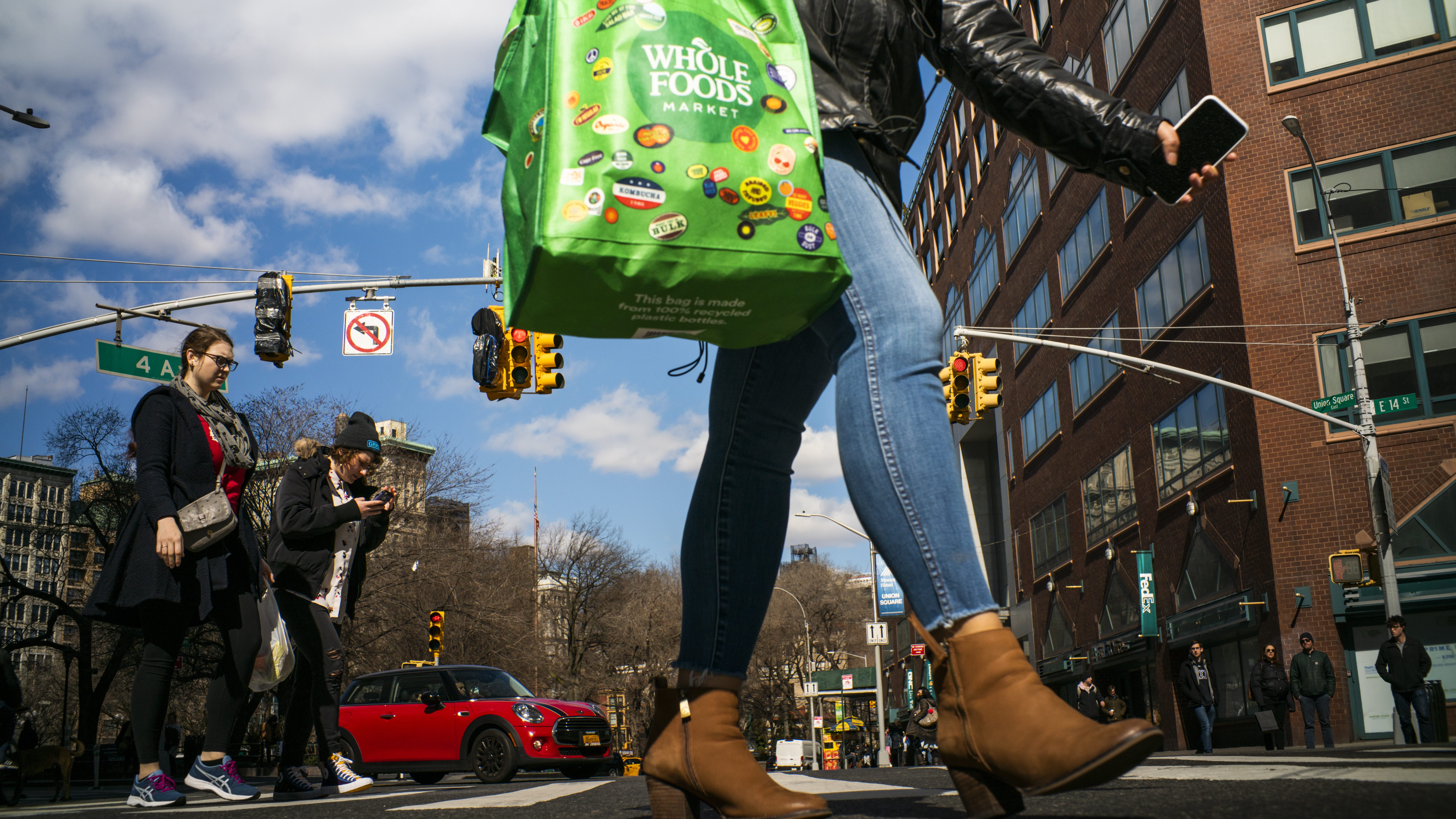This story has been updated with a correction.
New Hampshire Governor Chris Sununu announced last week that reusable bags will be temporarily banned during the COVID-19 outbreak, and that all retail stores will be required to use single-use paper or plastic bags.
The move is a dramatic reversal of the recent trend of states and municipalities banning single-use plastic bags. Over the past few years, Hawaii, California, and more recently Oregon and New York have prohibited the use of plastic bags. The bans are an effort to reduce plastic pollution, which is driven by single-use plastics like shopping bags and has taken a terrible toll on ocean ecosystems.
“Our grocery store workers are on the front lines of COVID-19, working around the clock to keep New Hampshire families fed,” said Sununu, a Republican, in a statement announcing the executive order. “With identified community transmission, it is important that shoppers keep their reusable bags at home given the potential risk to baggers, grocers and customers.”
New Hampshire isn’t the only state to revisit its plastic bag policies due to COVID-19: Maine has postponed a plastic bag ban that was set to go into effect on Earth Day.* But New Hampshire is the first state to take the additional step of banning reusable bags.
So will the reusable bag ban make grocery store shoppers and workers safer? The science on that is somewhat shaky. It’s highly unlikely for the virus to spread from one person to another via a reusable cloth bag or another fabric, Vineet Menachery, an assistant professor of microbiology at the University of Texas Medical Branch, told Grist earlier this month. While the novel coronavirus, like previous coronaviruses, has been shown to survive for up to three days on plastic and stainless steel surfaces if left undisturbed, it’s easily destroyed with soap and water, or rubbing alcohol. So washing a cloth bag with detergent would stop the virus in its tracks.
That said, grocery store workers obviously don’t know whether a person bringing a reusable bag into a store has cleaned it recently or not. Sununu is right that grocery store workers are on the frontlines of this public health crisis, and we should all probably be doing what we can to make their lives easier and less stressful these days. And the climate impact of plastic vs. paper vs. cloth bags is actually more complicated than you might think — although reusing a bag you already own is always a more climate-friendly option than creating demand for a new bag.
So eco-conscious New Hampshirites shouldn’t feel too bad about obeying the governor’s order for now. Just make sure to keep tabs on your reusable bags so you don’t have to buy new ones once the pandemic is over.
*Correction: This story originally stated that New York’s Department of Environmental Conservation had decided to delay enforcement actions against retailers who violate the state’s new ban until May due to the COVID-19 pandemic. The decision is unrelated to the COVID-19 pandemic.



